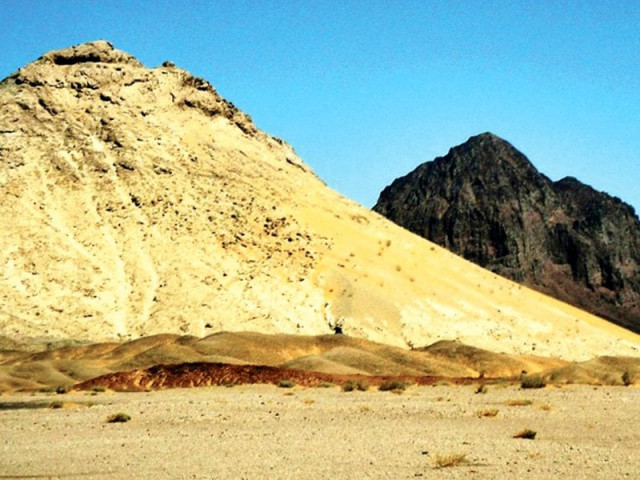Panel named to probe Reko Diq fiasco
Seven-member committee to investigate causes for the adverse ICSID judgment

PHOTO: FILE
According to a notification, Law Minister Farogh Naseem will convene the committee that includes Minister for Economic Affairs Division Hammad Azhar, Adviser to PM on Reforms Dr Ishrat Hussain, Attorney General for Pakistan (AGP) Anwar Mansoor, Special Assistant to PM on Accountability Shahzad Akbar, Special Assistant to PM on Mineral Resources Shahzad Syed Qasim and Barrister Ali Zafar.
The committee will probe into causes for the adverse ICSID judgment and determine role of individuals leading to the award of penalties against Pakistan.
“[It will also] highlight the lesson learned, so that mistakes made in handling this case are not repeated in future,” said the notification. The committee will also suggest the way forward and requisite recommendations in the instant matter.
It said all the material and documents pertaining to the case will be provided by the AGP office.
PM orders inquiry into Reko Diq 'fiasco'
The ICSID last month awarded a massive $5.976 billion (Rs944.21 billion) penalty against Pakistan in the Reko Diq case as it issued its 700-page ruling after a hearing that continued for over seven years. The penalty is one of the biggest in the ICSID’s history.
The ICSID awarded a $4.08 billion penalty and $1.87billion in interest along with $62 million in compensation for the cost incurred by the complainant, the TCC, in the litigation process. Pakistan has decided to challenge the award ‘very soon’ by filing a revision application.
The TCC had initially claimed $11.43 billion in damages for the termination of their contract by a Supreme Court bench headed by former chief justice of Pakistan (CJP) Iftikhar Chaudhary but Pakistan’s incumbent legal team was able to restrain the sum to $4.08 billion.
The current Pakistan Tehreek-e-Insaf (PTI) has already spent $10 million as legal expenditures on this case. A senior official revealed that the ‘misstatement’ of scientist Dr Samar Mubarakmand before the tribunal was one of the main reasons behind the ICSID slapping such heavy penalty on Pakistan.
Dr Samar had claimed that the Reko Diq gold mines would fetch the country around $2.5 billion annually. He had also maintained Reko Diq and other gold reserves in the country will bring in $131 billion to the national exchequer. The tribunal relied on his statement.
Three different international firms were hired to plead the case before the ICSID. Cherie Blair, the wife of former UK prime minister Tony Blair, was leading Pakistan’s first legal team. Renowned lawyer Ahmar Bilal Sufi was assigned the task of hiring the team.
Reko Diq case handled poorly: Bhootani
During the tenure of the Pakistan Muslim League-Nawaz government, then AGP Salman Aslam Butt had hired an international firm, Alen and Avery.
However, Alen and Avery was unable to find evidence of corruption in the contract between Pakistan and the TCC. Later, ex-AGP Ashtar Ausaf Ali engaged an American firm, GST, at the quantum stage.
Last month, the AGP office issued a statement saying: “The government takes note of the press release dated July 12, 2019 made by Antofogasta Plc, one of the parent companies of TCC, and of the statement by William Hayes, the chairman of the Board of Directors of TCC, in which he expressed a willingness to work towards a negotiated settlement. The government welcomes this approach to work towards a mutually beneficial solution that works for both sides.”
Reiterating Islamabad’s commitment to its international obligations, it said Pakistan welcomes all foreign investors and assures them that their lawful rights, interests and assets shall be protected.
“The mineral resources in Reko Diq are the collective resource of the people of Balochistan and Pakistan. Pakistan is keen for development of this resource to ensure that the development needs of some of the poorest people on the planet are addressed. International tribunals are also urged to consider the implications of their decisions and the impact on development and poverty alleviation,” it said.

1724319076-0/Untitled-design-(5)1724319076-0-208x130.webp)

















COMMENTS
Comments are moderated and generally will be posted if they are on-topic and not abusive.
For more information, please see our Comments FAQ